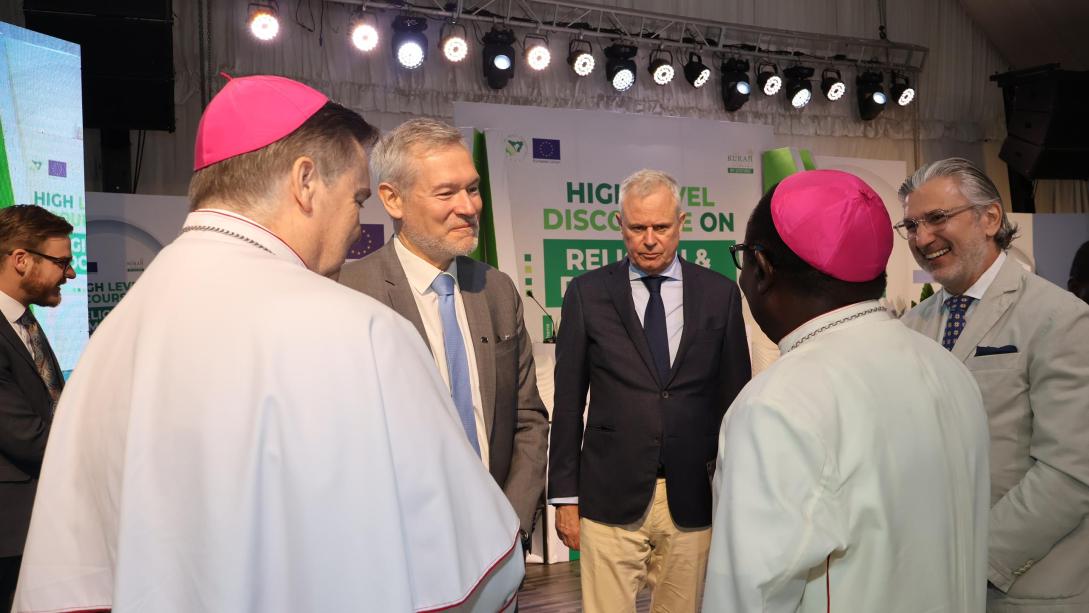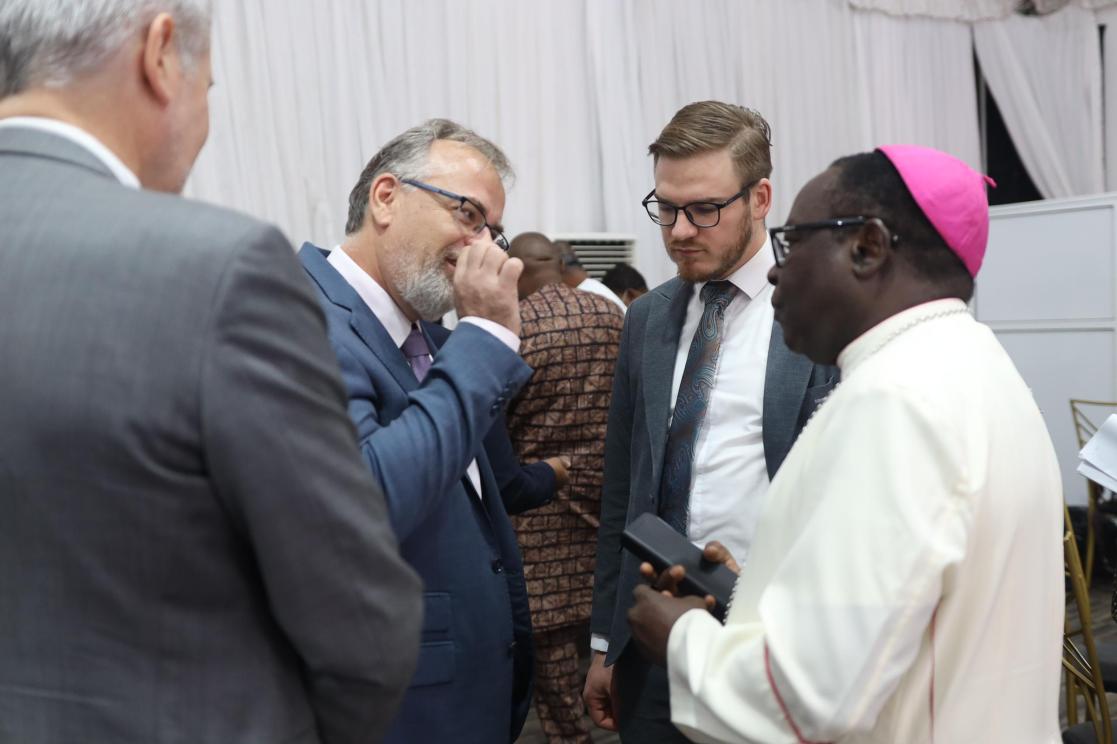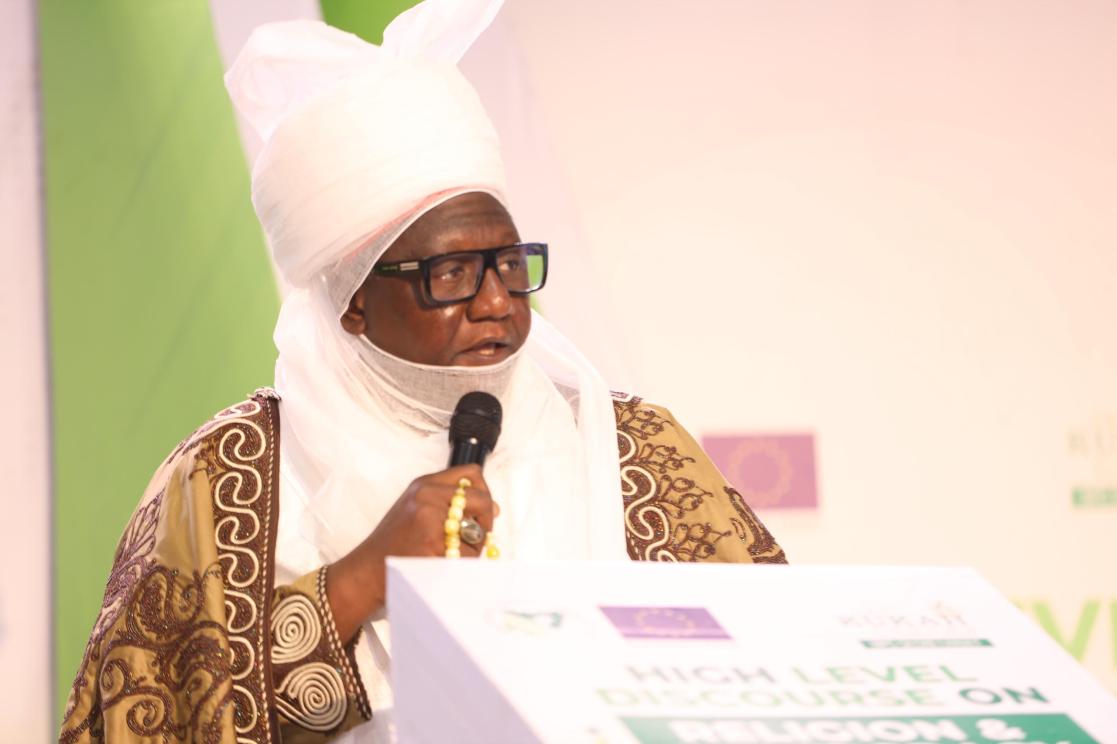EU, National Peace Committee rally stakeholders to high-level Dialogue on Religion and Democracy

The EU Delegation in Abuja and the National Peace Committee, on December 3, 2024, rallied stakeholders, including custodians of religious and traditional institutions to a ‘High-level Discourse on Religion and Democracy in Nigeria.’ The event was part of the EU actions to promote inclusiveness and collaboration in addressing the intricate intersection between religion and democracy in Nigeria. It underlined the crucial role of tolerance and mutual respect in a multi-religious entity, where the line between religion and ethnic identities can sometimes be blurred, often influencing perception of public policies.
The event had representatives of the Senate President and Speaker of the House of Representatives as well religious and traditional rulers, including the influential Catholic Bishop of Sokoto, Mathew Kukah, Islamic scholar, Sheikh Muhammad Nuru Khalid, and Homun Daniel Shaga Ismaila, the paramount ruler of the Bachama Kingdom, among others.
Ambassador Gautier Mignot said the event was in line with the EU’s steadfast commitment to its mission of promoting global peace. He cited Article 10 of the EU Charter on fundamental rights provides for freedom of thought, conscience and religion and the work of the EU Special Envoy for the promotion and protection of freedom of religious beliefs outside the EU. He also noted that the EU’s programmes including, “EU Support to Democratic Governance in Nigeria (EU-SDGN), Rule of Law and Anti-Corruption (RoLAC), and Faith for Peace and Inclusive Religious Engagement in Nigeria Enhanced by Women (I-RENEW) and the annual dialogue on the state of Human Rights are geared towards realising the goals.
President of the Senate, Godswill Akpabio and the Speaker of the House of Representatives, Tajudeen Abbas, through their representatives, lamented the number of Nigerians who die yearly in the name of religion and politics, and called for an end to it. Standing in for Akpabio, ex-Edo governor, Adams Oshimohole, now a senator, noted that Nigeria, its huge population had been caught in the vortex of religious bigotry. According to him, the dangers posed by violence and intolerance remained a potent threat to the country’s democratic values as well as the principles that hold the society together. Noting that an eye for an eye would only make the whole world blind, Senator Oshiomhole enjoined Nigerians to embrace their differences and celebrate their shared humanity.
The Majority Leader of the House of Representatives, Julius Ihonvbere, who represented Speaker Tajudeen Abbas, also admitted that religion had remained a strong determinant factor in Nigerian politics. He lamented that Nigeria’s rich, diverse cultures and religions, which historically played a pivotal role in shaping its societal values and norms, had become a source of division and conflicts, which political leaders regularly exploit for electoral gains.
Bishop Kukah canvassed for a moral foundation on which the country could build against evils brought about by religious conflict. He lamented that Nigerians were dying daily in the name of democracy and religion, and charged religious leaders to understand their responsibility to create a moral compass around politicians to make them effectively deliver on their promises.
The NPC is an inter-faith non-partisan initiative, driven by former Head of State, Gen Abdulsalami Abubakar, and Bishop Kukah, and aims to foster electoral integrity, peace and national unity.

EU Del

EU Del
